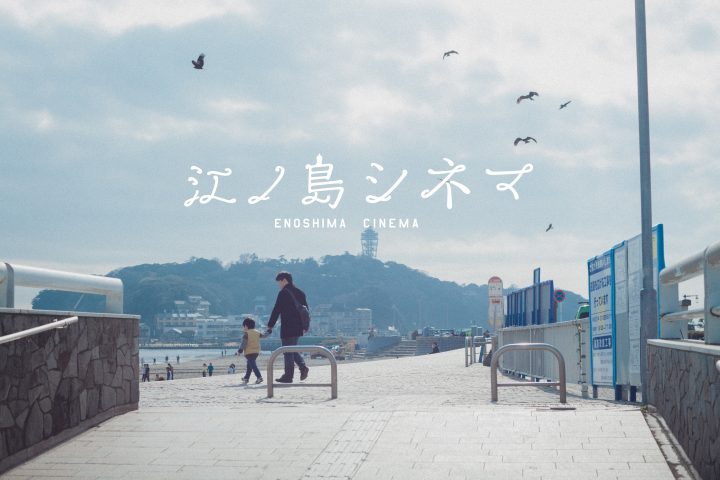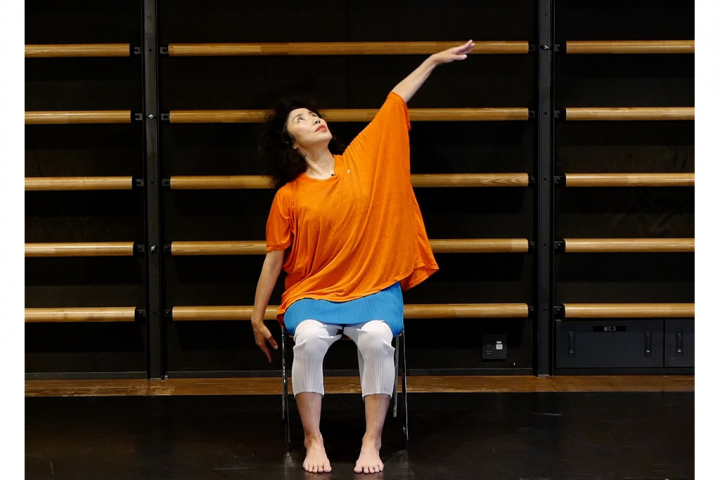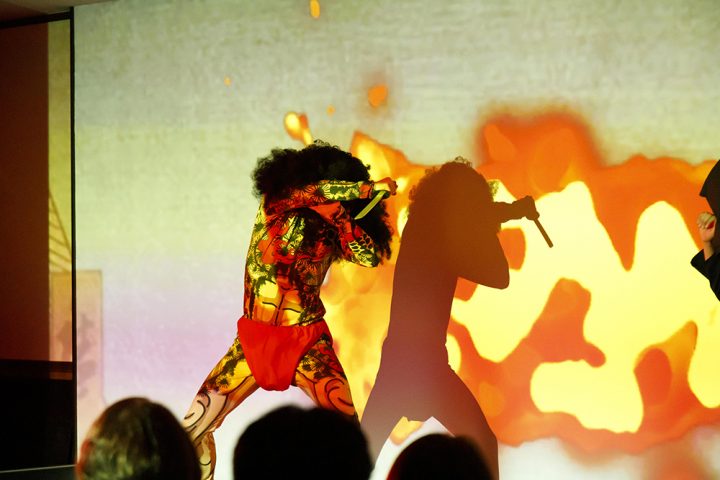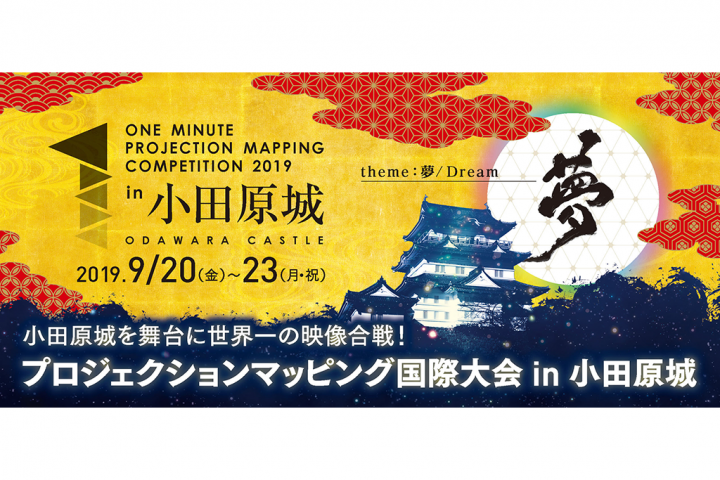Interview with Tetsuya Kinouchi, producer of the movie “Candidacy”
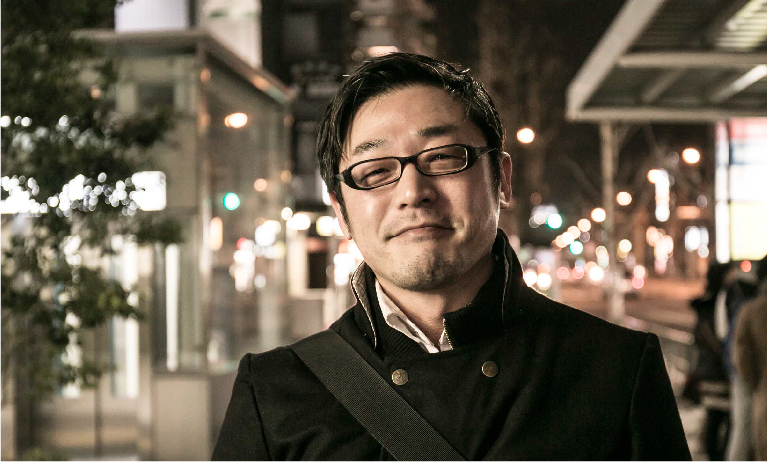
While watching the news about the Tokyo gubernatorial election in February, I remembered a movie that left an impression on me last year.
That film is ``Candidacy,'' which won the documentary category at the 68th Mainichi Film Competition.
The movie is about people who are called ``foam candidates'' in elections. To put it in a bad way, it was a movie that approached people who were thought to have no chance of winning.
However, I thought it would be a critical documentary about elections and politics, but my expectations were completely betrayed.
It was a movie that left me with a strange feeling of ``impression and doubt'' mixed together.
"What on earth was that? Why was it Mac Akasaka?"
After researching various questions, I learned that the producer who was involved in the production lived in Kanagawa.
Magcal conducted an interview to answer this question.
In addition, this time we will have documentarian Gen Umin as a guest interview, and we will talk about the production side of the story as well.
We spoke to producer Tetsuya Kinouchi, who produced the movie ``Candidacy,'' about this movie.
How did that movie come about?
Photography cooperation: Isshin Tasuke Shinkoenji store http://tabelog.com/tokyo/A1319/A131904/13123087/
Guest Interviewer: Gen Yumin
Photo・Interview&Text: Masamasa Nishino
■ Tetsuya Kinouchi
Production & Photography Born in Tokyo in 1971
Graduated from Massachusetts College of Art, San Francisco Art Institute, Department of Film Studies
In 2005, he was in charge of cinematography for ``Fujiyama ni Missile'' directed by Toshimitsu Fujioka. Since then, he has been involved in many Fujioka works.
Movie “Candidacy” website: http://ritsukouho.com
■Gen Umin
Born in 1985. To-la-ga (2010), which follows a visit to the grave of his grandmother, who was once a diver diver on Jeju Island in South Korea;
He has produced works such as ``NO PLACE LIKE HOMELAND'' (2011), which photographed young people with diverse Korean roots in Seoul.
The theme is people who leave the place of their birth and continue to move.
He is currently refraining from filming a new film set on a passenger ferry in South Korea.
2011 Completed the Department of Media and Film, Graduate School of Film and New Media, Tokyo University of the Arts
2012 Participated in the 13th Tokyo FILMeX Talent Campus Tokyo
He has also participated in many works by Akira Takayama's theater unit PortB.
ーーーーーーーーーーーーーーーーーーーーーーーーーーーーーーーーーーーー
■In conjunction with this interview, we received comments from Cinema Jack & Betty manager Toshiyuki Kajiwara.
The movie ``Candidate'' was released in Tokyo at the end of June, just before the July 2013 House of Councilors election, and in August of the same year, it was released at Cinema Jack & Betty in Yokohama during the Yokohama mayoral election. It was screened together with the documentary films ``Election 2'' and ``Muneoism: 13 Days of Love and Madness.'' All of them are excellent works with great highlights, and I'm glad I was able to introduce them all at once. What left an impression on me while screening the movie ``Candidacy'' was that after watching the movie, all the customers said they were ``moved.'' As much as I laughed, was surprised, and felt uncomfortable with the campaign activities of the bubbly candidates, in the end I was moved and it returned to me. "When you realize it, you've gained a lot of courage." The reason why it was seen by more young people than the museum's regular screenings may be because it has an entertainment value with laughter and tears, as well as a message that is rarely found in documentary films. Director Toshimitsu Fujioka and producer Tetsuya Kinouchi are currently attracting the most attention in the mini-theater scene, as young people are not only turning away from politics but also away from movies and movie theaters.
Cinema Jack & Betty Manager Toshiyuki Kajiwara
http://www.jackandbetty.net
−The impetus for film production/encounter with the director−
Gen: Mr. Kinouchi, did you study film while studying abroad in Massachusetts?
Kinouchi: Yeah, that's right. But I first got into it as a sculpture.
Gen: Well, originally I didn't go to America because I wanted to do it in the movies.
Kinouchi: There was no absolute answer. I was interested, though.
In the case of the movie Candidate, Toshimitsu Fujioka was the director, so I was more concerned with the camera, and then I looked at the editing and wondered what the weaknesses were.
*Please refer to another link for information on Director Fujioka.
Gen: Is Mr. Fujioka also the editor?
Kinouchi: Yes. He edits everything. We watch it together about once a month.
Gen: : How much editing did you do?
Kinouchi: I think I've been doing it for a little over a year.
Gen: Is it just editing?
Kinouchi: No, the election period is only 17 days long, so there's about 20 days of filming before and after, and the editing is put together based on the material shot during those 20 days. Then, the two of us looked at the edits he made, wrote them down in our notebooks, and thought things like, ``Maybe it would be a good idea to include some words in this section,'' or ``I think this explanation would be better.'' We don't have enough, so let's bring some material over here,'' and while we're doing the work, we say, ``We don't have enough,'' and go back to filming (lol).
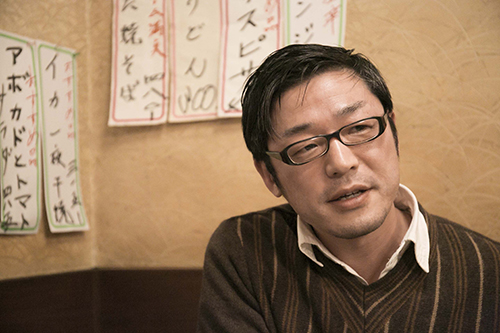
Gen: Is it during the period?
Kinouchi: No, after it was over. The filming period was about a year or so. Because I was persistent.
Gen: Did you have something like a composition chart before filming? .
Kinouchi: No, no. Only Peraichi's proposal written by Fujioka-kun is called "Dream Chaser."
Gen: Ah, it's not there anymore. By the way, what was the impetus for this movie?
When I looked at your profile, I saw that you had previously produced a feature film with Toshimitsu Fujioka, who is also the director of this film.
Kinouchi: Yeah, yeah. ``Missile in Fujiyama'' ` `I see.
How long have you been dating Fujioka-kun? I think we've been together for about 10 years. They both worked at a commercial production company. He joined the company and worked under me, and he was really good. But suddenly he said he was quitting, so when I asked him why he was quitting, he started saying things like, ``I came from Yamaguchi to make a movie, but I can't make it.'' (laughs) Well, I also like movies, so I asked him to show me the script. Then it was really interesting. So, this is what I thought.
Gen: Yeah, yeah.
Kinouchi: At that point, I had been a salaried worker for seven or eight years, so I thought it was okay.
Gen: Have you always been with that company?
Kinouchi: Yes. So, we both said, ``I'm quitting too, so let's make it together!'' and we both quit.
Gen: Yeah.
Kinouchi: I quit my job to make a film, and although I was able to release it, it was screened late and for two weeks in Seki no Yama. I also sent it to various film festivals, but it didn't get picked up at all, which was quite a shock.
Gen: I see. Because the two of them bet their lives on it...
Kinouchi: That's right. Because I had two children (everyone: lol)
Gen: Was there no opposition?
Kinouchi: Well, it was a matter of timing, and the book was interesting.
This is already something, aim for ``Crazy Blooming Thunder Road'' ! With such force.
Gen: I see.
Kinouchi: I was thinking of doing something similar to ``Thunder Road'' and John Cassavetes ' ``The Fallen Woman .'' Then nothing happened... (laughs).
So, I couldn't make ends meet, and I started working at a new company, which was also involved in advertising, so I asked him to work as a director and we made commercials together.
Gen: Ah, I see. The relationship between the two continued after that.
Kinouchi: That's right. And basically the same style. I'm the producer, but usually the budget is small, so he handles the director and editing, and I handle the camera and producer. But he's going back to Yamaguchi. My parents run a newspaper sales office, and my father got injured, and there was talk of getting married. So, I was like, ``I'm going to give up on film and go home.'' The two of us talked about that quite a bit. ``If you try a little harder, you'll be able to eat, so let's make another movie together.'' But I had already decided something, and it wasn't just about one person.
Gen: Yes, yes.
Kinouchi: So, I'm not going to a wedding anymore. When I went there, my mother and others said, ``Thank you so much for treating me like a younger brother in Tokyo.However, Toshimitsu (the director's name) has decided to take over the newspaper shop'' (everyone: laughs).
Gen: When was that?
Kinouchi: About five or six years ago.
Gen: So it's been two or three years since I shot the previous work.
Kinouchi: I guess so. That's why this work is of course a documentary, but more than that, I think it's a big story about ``film director Toshimitsu Fujioka.'' In the end, I returned to Yamaguchi and continued to run the newspaper sales office, but I guess I just couldn't give up on my dream... I guess that's where the movie started.
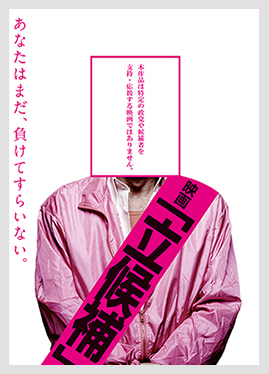
©word&sentence
The main visual for the movie candidacy. Currently, Mac Akasaka has announced his candidacy for the Osaka mayoral election.
The design has been changed to emphasize fairness.
-Why Documentary/Why Mac Akasaka-
Gen: When you started working with Fujioka-san again, why did you decide to make a documentary?
Kinouchi: That's because while Fujioka was delivering newspapers, he started thinking, ``I really want to go back to film, but what is the best way to do it within my capabilities?'' In the first place, he had no intention of turning this subject into a movie. At first, I heard that it was something like an interview video on YouTube.
Gen: Did you have a plan to do something like this?
Kinouchi: Yes. The interview was with Junichi Yaoi , a researcher who believes in UFOs.
Fujioka-kun also likes people who are chasing the Tokugawa buried treasure, people from Monthly Mu , and things like that.
Gen: I see.
Kinouchi: So, do those people really believe it? If they believed in it, they went to find out how they were going to make it happen, and they were planning to upload it as a series on YouTube.
Gen: Yes, yes. It really feels like I'm straightening my shoulders.
Kinouchi: That's right. It's like a little bit of rehabilitation.
Kinouchi: So, on the political side, Koichi Toyama went to see if the people who advocated ``overthrowing the government'' were seriously thinking about it. Then there was the so-called ``foam candidate'' genre, and Seizo Hashiba and Hideyoshi Hashiba appeared in it, and Mac Akasaka appeared in it.

©word&sentence (From left: Koichi Toyama and Hideyoshi Hashiba Seizo)
Nishino: I was looking for someone I was interested in and Mac Akasaka happened to be there.
Kinouchi: That's right.
Nishino: I didn't go straight toward elections or politics from the beginning.
Kinouchi: Yeah, but Fujioka's father has always been a member of the Diet, and I like politics, so we talked about things like that.
Gen: Ah, I see.
Kinouchi: I simply like politics, history, and movies. But I don't know much about UFOs (lol).
So, he said, ``I've got an appointment with Mr. Toyama, so I'm going to go there for a bit!'' He went to Kyushu by himself and took some pictures, so I asked him, ``What are you going to do next?'' He said, ``For now, I'm going to attack someone called Mr. Mac.'' I'll give it a try.'' So I sent him a letter from Yamaguchi, and when we spoke on the phone, he said, ``Why don't you come see me?''
So, when I went there, Mr. Mac said, ``I'm about to elect the governor of Osaka Prefecture, and Mr. Hashiba should be coming, so you should take a picture of him.'' It's like, ``If Hashiba-san is Hideyoshi, I'm Nobunaga.''
Declaration of retaking Osaka (lol).
Gen: Mac wrote the plot (lol)
Kinouchi: I was like, ``I can film the recapture election, so why don't you just film it?''
Then, I finally got a call from Fujioka-kun, and we said that we thought this would be interesting, and that we should do it together.
So I didn't really think about releasing it or anything like that. Well, I just wish I could do it.
When I heard that Fujioka-kun was coming back to the world of film, I was so happy that I cried tears of joy, so I decided to do whatever I wanted. However, since there was an issue with the previous work, I decided that the next time I would do it, I would try to finish it all. Fujioka-kun went to Mac-san's office and heard about it, so I think he was impressed, or thought, ``This would make a great picture.''
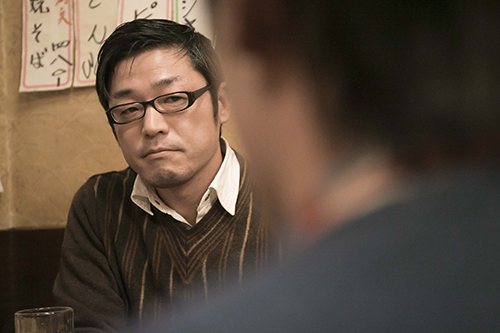
Gen: I see. I kind of thought that from the beginning, there was the issue of ``foam candidates,'' and that Mr. Mac came to the fore as he photographed all of them equally, but if anything, it was Mr. Toyama who led him to take up the role of Mr. Mac. I guess I felt like I was being pulled inside by Mr.
Kinouchi: That's right. That's what started it all, but I know that those bubbly candidates will lose after all. If it were normal, I would know that I would lose, so why would I go out and hit? In order to explore this, I wanted to avoid it becoming propaganda for the candidates, so I shot them evenly. I mean the people who are appearing on the show, or rather the people who are participating in the elections. It's hard for me to let people take pictures of me as a bubble candidate. That's why I was able to take the picture quite close... Or rather, they don't get caught. I don't pick up the phone, I don't go home. So it's like being a Showa newspaper reporter or a Showa detective drama, where you're on standby and your whole day is wasted.
Gen: They're chasing each other.
Kinouchi: Yes. I've been waiting in front of my house since early morning, saying things like, ``The morning paper hasn't been picked up yet!'' It's really a world of anpan bread and milk (lol).
Gen: But you persisted there, right? It's not like, ``It's not efficient after all, so let's change it.''
Kinouchi: Well, that's the plot that the director had decided upon, so it had to be shot fairly.
And when I was editing it, it took about two and a half to three hours at first.
Gen: The completed version is about 100 minutes.
Kinouchi: Yes. I put it in fairly. And it was horribly boring (everyone: lol).
Gen: There was once a different version.
Kinouchi: Yes. It's horribly boring and I'm like, "What should I do with this?"
Then I let it sleep and touched it up again... Then, I gradually became squeezed by Mr. Mac.

©word&sentence (Image: Mr. Mac Akasaka giving a speech)
Gen: I see. There was also talk that they started filming after filming had already begun.
After going through that editing stage, it became like, ``Oh, this is Mac.''
Kinouchi: Yes. But no matter how many times we interviewed Mac along the way, he never came up with the words we needed based on our expectations. The only thing that came out was "smile", so I couldn't understand it anymore. Well, I'm also a producer and cameraman, and Fujioka-kun is a director, so I'm worried. This is not good (lol).
I guess I decided that there was nothing I could do about this, so I went back to Osaka and went to shoot some new material.
Nishino: Was that your decision?
Gen: No, that's director Fujioka's. After all, the director's intuition was, ``This is no good.''
So, I started chasing the secretary, Sakurai-san, and other people around the area at the same time. Mr. Mac doesn't speak, and when asked, all he says in response is "smile," so I don't understand him.
So I'm going to explain Mr. Mac from the outline.
Gen: Yes, yes.
Kinouchi: ``I'm going to solidify my true image of a promising candidate with those around me.'' If we explain the core of it, there's no need to make a movie about it.
Gen: Certainly.
Kinouchi: When I look back at interview videos, I think there are always words chosen by the interviewee somewhere.
I think if you put it all together again, you'll start to see a lot of things.
Then, if you add the effect of a time axis to that, it suddenly becomes deeper, regardless of whether it's interesting or not...
What used to be flat now appears three-dimensional, or rather has depth. I think that's probably what's interesting about documentaries. Documentaries that are worth watching are sure to be watched again 10 or 20 years from now.
-Photographer, Photographer/Expectations and Betrayal-
Gen: Listening to what you just said, how did you decide when to stop?
Kinouchi: Ah, of course there is a final scene in Akihabara, right?
Gen: Yes, yes.
Kinouchi: Because I was able to take that photo.
Gen: I see.
Kinouchi: I was like, ``Ah, this must be the last time.'' At the end, Mac's son suddenly changes.
The point is, if you can film a person who suddenly changes in a movie, it can be used to some extent, because it's a drama.
At that point, the story begins to tell itself. "Why did you suddenly change?" he asked. Well, it's a sudden change, or rather a transformation.
Nishino: When you took the picture, did you have the idea that it would be put together like a drama rather than a documentary?
Kinouchi: Originally, the last scene was shot during the 2011 election period, and we used that for the climax. I was holding free screenings and seeing the reactions.
Nishino: It was completed once in the middle.
Kinouchi: That's right. We held a screening of a version with the climax of Governor Hashimoto's election speech. Well, I guess I'll just show it to everyone. However, as I was thinking about it, I started getting only negative reactions, and then I realized that...I think it was the 2012 Tokyo gubernatorial election.
That last scene was filmed a year after it was completed.
Nishino: In the end, you couldn't have predicted everything from the motif to the end, right?
Kinouchi: Yeah, yeah. Earlier, Tatsuya Mori also said, ``Oh, you guys weren't shooting with that in mind, were you?'' "No, you're right." (laughs)
Well, I had kind of thought about it, but I didn't think it would happen like that.
Nishino: Mr. Mac participated in the Tokyo gubernatorial election the other day, but he's no longer chasing you, right?
Kinouchi: Hmm, it's still going on, or rather, I'm still chasing it. I have applied for an interview with Mr. Hashimoto. Mr. Mac is planning to run for mayor of Osaka next time. I hope next time I can take pictures from Hashimoto-san's perspective.
Gen: So, if you put the two together, won't this work become like a "furi" to Mr. Hashimoto? Mr. Hashimoto has quite a character, so I think there are many people who remember him. The final press conference scene.
Kinouchi: However, according to Fujioka-kun's plot, it is a work that praises all candidates, not just politicians. After all, that's not the case in the world. Everyone will be dissing it right away, right? It's a common story that it gets a lot of attention on Twitter. But I don't think that kind of thing is very good. He picks up on people and says things like this and that. So, in the end, I think it would be better to live in a world where there are all kinds of possibilities, and I think it would be better if it was a world where there were all sorts of possibilities. I think it's really unfortunate that people are trying to take advantage of others or make fun of them.
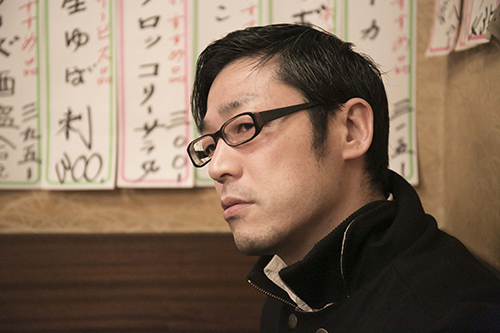
Nishino: I feel like that sort of thing is converged in the last scene. It certainly gives me a great feeling of being able to take a photo.
Kinouchi: That's why documentary work is quite difficult. I'm not sure if Mac is really a good person.
Gen: I think there are times when I don't like the subject I'm photographing.
Kinouchi: Ah, yes, there is. It still exists.
Nishino: I'm curious about how you continued to film that... Is there such a thing as “love”?
Kinouchi: Ah, I think the director did a really good job on that. Because there are scenes where Mac suddenly starts to get angry and is quite irrational. However, I was allowed to take pictures of this place, and I saw all of those places, and it turned out like that, but I think that was Fujioka-kun's expression of his will. I said, ``Let's try making a movie again.'' I think that part is no different from people like Mr. Mac and other people who are said to be popular candidates, who come forward even though they know they will be ridiculed. So, denying Mr. Mac means denying yourself, so I can't do that... I guess there was something like a belief. It's so easy to turn to the dark side. I don't think there's anything wrong with criticizing the subject of the photo.
Gen: In Mr. Fujioka's case, that's not the case.
Kinouchi: Yes.

©word&sentence
Nishino: But in the end, I feel like I was betrayed a lot, or that it became a filter.
At first, I felt that Mr. Mac was being portrayed as ``an interesting person,'' but along the way, he filmed all the abominable behavior that even the audience was shocked at, and it seemed like he was trying to get into the school festival and harass him. He gave a speech, got drunk and ran out onto the street.
It's like, ``How is this movie going to treat Mr. Mac?'' in a good way.
Kinouchi: That's right.
Gen: If you're watching Mac, you're thinking, ``I'll never like this person,'' and then the ending ends like that, and you think, ``Maybe we were watching from that side, too.'' ” I felt like that.
Kinouchi: Boomerang. Because so were we. The position of the camera is also set back at first. At first, it's composed of pulls. I have no choice but to back down from that, because my feelings are holding back (lol).
Nishino: Ah, certainly. That's interesting.
Kinouchi: Of course, I take into consideration my own feelings as a photographer, but I also take into account the reactions of those around me when creating images.
Gen: I see, it's exactly like the first election commission room.
Kinouchi: That's right, that's why I don't back down.
Nishino: It was a huge draw.
Kinouchi: But it's getting closer and closer. Mac is becoming more and more interesting, or rather, I am being drawn into it. Also, the camera position is high at first, but gradually becomes lower. The scene of Mr. Hashimoto's speech changed a lot, or rather, at that time we were looking down with a camera attached to the end of a 4m boom, and after that battle, I felt something...the sadness of a helpless human being. When you see the overflowing Don Quixote face, you can't help but say, ``I'm here.'' The camera has no choice but to lower itself (lol). Lower the camera and look up at the subject. That's what it looked like after all, because it really looked like something like a human, or rather a divine hero image. And I think that since we were able to take that photo, we too have changed completely. Of course, I think that's reflected in the editing. I think the same goes for Fujioka-kun's excellent editing, but I think it's because we ourselves have changed as well. There, the pace is the same as the customer's, following the story.
Gen: So the photographer felt the same way.

©word&sentence
Image left: Mr. Mack's son gets into an argument with the crowd. I was watching Mr. Mack's speech for the first time.
Image right: Mr. Mack looks sad as he watches the speech.
-Theme song "Machilight"/Link of content and lyrics-
Nishino: Mr. Kinouchi himself sings the theme song for this movie, right? I think it's a very rare style for a producer...
Personally, I like it because it looks like THA BLUE HERB .
Kinouchi: Ah, at first I thought I'd ask THA BLUE HERB. The director said he wanted to use the song ``Stray Dog'' by THA BLUE HERB.
Nishino: That's right!
Kinouchi: So, he sent me the sound source, and when I listened to it, I found that the content of the lyrics was very similar.
Gen: Yes, yes.
Kinouchi: So, the content of the lyrics written by Il Bostino (MC of THA BLUE HERB) and the content of the movie ``Candidacy'' are very closely linked. In the lyrics, there's a moment when one day a pet dog wearing a collar passes by a stray dog living alone. Naturally, the lyrics were written from the stray dog's perspective, but the moment they passed each other, their perspective changed, and the pet dog looked lonely and said to the stray dog, "You, too, will know the despair of this life someday." It speaks to me. So, it probably had the same effect as the boomerang at the end of the movie ``Candidacy.'' I think that's probably where Fujioka got caught. So I said I wanted to use it. So I contacted Il Bostino.
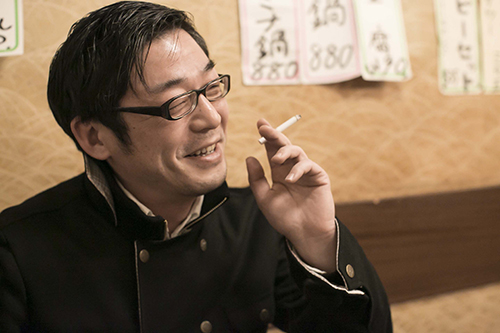
Nishino: So you asked about it. What was your reaction?
Kinouchi: No more gravel (everyone: laughs).
Nishino: There was no response at all (lol).
Kinouchi: That's right. Well, I tried a few times, but I couldn't get there.
Well, I thought it would be impossible to pursue it any further. But I thought, ``I can write this.'' After all, we made a movie together.
Nishino: I understand it the most. It's the content, or the perspective.
Kinouchi: Yes. So I just followed the line of sight. It's a song called ``Street Lights,'' and all of the lyrics are based on the movie ``Candidacy.''
Gen: I see.
Kinouchi: The lyrics, ``Being grabbed by the chest, spit on, trampled on, and laughed at'' are from Mac's point of view. So, ``The hero's destination is West, a snowdrift.'' ``West'' means that after Mr. Mac confronts Mr. Hashimoto, he looks very sad, and in the background it says ``Go West.'' There's a stupid big sign. So the destination the hero heads to isn't Journey to the West, but it's something like, ``Go west, head to India,'' or ``A twisted Gibran passing by shouts and whispers in your ear.'' There's a poet named Khalil Gibran . There is a collection of poems written by Gibran called ``The Prophet'', and the person who wrote it is Koichi Toyama.
Gen: Ah.
Kinouchi: That's why the famous political broadcast "Voters!" is already a prophecy. Prophet. It fits the image, right?
Gen: Ah, that person certainly is! At first I thought it was a Mac movie, and when I started watching it, I thought, ``Huh? This guy's cool.''
Kinouchi: Unfortunately, that prophet no longer participated in elections after the 2007 Tokyo gubernatorial election. That's why I couldn't chase him (lol).
-What's wrong with entertainment? /Producing a documentary
Gen: I'm talking about the music earlier, but the scenes with Sakurai and his son at the end really evoke emotion.
So, when you watch it as a movie, the music and other aspects tend to be taken away from you as a viewer.
Kinouchi: Yes, yes.
Gen: As expected, they took it with me. But if you take a step back and look at it, what is it? I think you can also criticize it by saying, ``I think you're taking it too emotionally.''
Kinouchi: That's right. When I talked about the so-called documentary genre, some people pointed out things like the inclusion of music and the way the graphics were processed. Yeah.

©word&sentence
(Image: Private scene with Mr. Sakurai's (left) family. He serves as Mr. Mac Akasaka's secretary)
Nishino: In that respect, the poster is very stylish, the graphic logo and copy are catchy, and the introduction is very thorough.
Kinouchi: Yes. Well, rather than asking me, I think it would be better to ask Fujioka-kun about that, but it's not about being particular about genre, it's about ``what do you want to convey?'' I think editing is just an extension of that. Not many people talk about it, but if you ask me, this movie could be considered a ``music movie.'' During Mr. Mac's election speech, he was allowed to use music as much as he wanted. What I discovered once again was the question of whether to add narration or not. So, for Fujioka-kun, it was Fujioka-kun who added the SE, for example the scene where Mac smokes Onikoroshi, the sound of footsteps, etc.
Gen: Isn't that the actual sound?
Kinouchi: Yes. Since we were filming with two people, we couldn't reach the microphone. Fujioka-kun was slugging with a straw. That guy is bad again (lol). If I wanted to do it a little more naturally, I could do it, but since Fujioka-kun is doing everything by himself, there are limits. But for Fujioka-kun, he said, ``That's the narration.''
Nishino: I see.
Kinouchi: So, for him, the typography and motion of the subtitles are explained through narration. After all, it's just an extension of editing, and the element of music is, after all, narration.
There are no words in that language, but visual or auditory information is added as an explanation.
Gen: So, are there any particular rules like "This is a documentary, so we have to do it this way"?
Kinouchi: No, it's better to be interesting, right? Because if it's not interesting, people won't watch it. It's not the bare minimum of manners, but you have to be greedy in order to be seen. So, if you eliminate all of that and create a new movie, if that movie earns 10 billion yen in box office revenue, then that's fine.
If you say 10 million people watched it, I think that's a good thing.
Because that's what I have to aim for. I think it's just a matter of "how do we fight to have people all over the world see it?" If you say, ``No, I just need to reach 1,000 people,'' you can say that. If that's what you can eat. What I just said is a little producer-like, but I think it's about ``how to set things up.'' So I don't think there's any need to be particular about the type. It's a question of "how to convey the message."
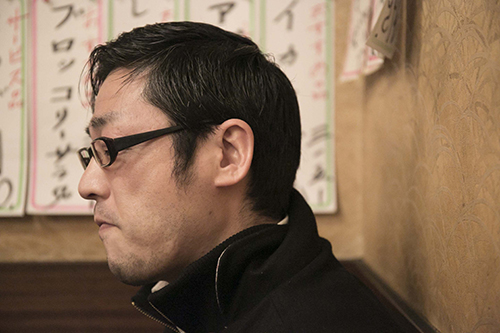
Nishino: Regarding that fighting style, are there any directors or works that you often refer to that have influenced you before making a documentary film like this one?
Kinouchi: Well, it's Tarkovsky after all. It's usually Tarkovsky or Coppola 's ``The Godfather'' 1 or 2, and then there's ``The Deer Hunter'' from that area, and uh... Cassavetes ! No, I really like it.
Gen: It feels like we're fighting (lol). When it comes to fighting styles, I'm also a documentary fan, but I think about the same fighting styles as Tarkovsky and Coppola.
Kinouchi: Fujioka-kun, that's it, because it's Nausicaa of the Valley of the Wind .
Gen: Nausicaa! Eh (lol).
Kinouchi: Nausicaa is a masterpiece for him.
Kinouchi: It's not a big romance, like it traces conflicts between ethnic groups in history, or asks, ``How should humans live?'' It's really interesting to watch from the side that Fujioka-kun is thinking about this. Then, the other day, at the awards ceremony for the Mainichi Film Contest, Mr. Suzuki from Ghibli came and I met him for the first time, so I said, ``Next time, please let me do a live-action version of The Valley of the Wind!'' (laughs)
Nishino: Live action (lol)!
Kinouchi: Yes. So, I was asked, "How do you take pictures?"
I said, ``I'm going to take pictures from Torumekia! I'm going to take photos from Torumekia side, not from the Valley of the Wind side!'' (lol).
Nishino: I see. It's thorough.
Kinouchi: Yeah, well, it's Star Wars (lol).
-Why did they run for office/5 options?
Gen: Another thing I really wanted to ask is why did they decide to run? Mr. Kinouchi, do you have an answer?
Kinouchi: No, Fujioka-kun found it. There are only five options.
Gen: Yes, yes.
Kinouchi: The first thing that comes up is five options.
It took me a long time to get to that point (lol).
Gen: Ah.
Kinouchi: That's the only option. Options for political participation:
There are only five options: ``Be angry at home,'' ``Be angry outside the house,'' ``Go vote,'' ``Run as a candidate,'' and ``Start a revolution.''
Gen: I see.
Kinouchi: So, they chose to ``run for office,'' but as for why they chose, they say it was because they were dissatisfied with the current politics.
Gen: Hmm. Is that really common?
Kinouchi: I guess so. It may be possible to replace it with another word, but I guess that's the only way.
So, it's unseemly to complain at home, there's no point in complaining outside, and there's no effect in simply going to the polls, so I'll either make a revolution or run as a candidate.
Gen: I see. What about the title at that stage?
Kinouchi: I chose the title ``Candidate'' after I finished filming and looked at the editing in January or February. There were about 100 ideas, but the simplest, or rather, the most direct, was ``candidacy''. If it were me, I think the title would be a little more emotional.
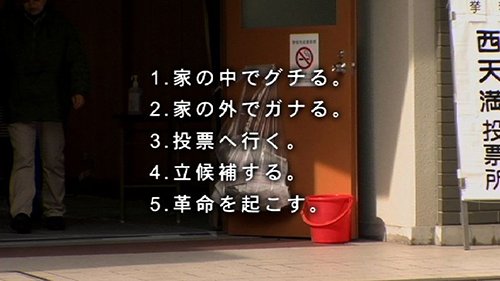
©word&sentence
-Reaction to the movie “Candidacy”/Future outlook-
Gen: Come to think of it, when Mr. Mac was giving a campaign speech, a foreigner passing by would say something like, ``This can't happen.''
That part also left quite an impression on me.
Kinouchi: Ah, that's right.
Gen: Well, as you were following the performance uproar this time, did you start to think about the level of Japanese politics and democracy?
Kinouchi: Quite a bit. When I looked into voting rates in other countries, I realized that Japan is surprisingly politically conscious. So, in terms of the reaction, when I looked at the comments on the blog, I felt that a lot of people were quite understanding. If you were just looking at it as content, I think it would be a work that would be criticized, but it seemed like there were a lot of positive opinions. But, paradoxically, this is also proof that it hasn't arrived. After all, no matter what masterpiece a work is, people who say it's no good will say it's no good. But I think that's because it has arrived. There are some people who say that ``The Godfather'' and ``2001: A Space Odyssey'' are no good. It's so well done that you'll think, "This is Shakespeare!" (lol)!
Gen: That's right (lol).
Nishino: By the way, I think Mac's Twitter followers have also increased because of this movie, and in reality, the movies didn't start out as independent screenings and progress to the point where they were released one after another in proper theaters. mosquito. I think that means there is a group of people who accept this movie, but do the producers have any predictions about how those people will respond to the movie ``Candidacy''?
Kinouchi: People who get caught up in the phrase ``Why fight even when you know you'll lose'' or people who get caught up in the genre of ``foam candidates'' are people who are somehow persecuted or inhibited by society. I think so.
Nishino: I guess I was being inhibited... (Everyone: lol)
Gen: It's amazing that Mac has 400,000 followers on Twitter, but are you just having fun?
Do those kinds of people come to watch "Candidate"?
Kinouchi: I don't think there are many. There may have been people who really liked it, but I think the people who came to see it were really hardcore movie fans. Yeah, well, I guess that's the next challenge.
Nishino: With this work, I think Director Fujioka and Producer Kinouchi have been given the impression of being the people who made ``The Candidates'', but weren't they originally making feature films? Do you have any plans to deal with political motifs in the future? Or maybe you don't care about that.
Kinouchi: Ah, because I like it. I can definitely feel the romance there. (Everyone: lol)
So at that point, I have a feeling that the number of viewers will be limited.
Gen: But that's a really good story. In reality, even if it's really tiring and you say, ``Please do this again,'' it doesn't mean that you don't want to do it anymore.
Kinouchi: That's right.
Gen: I think we can do something with this theme alone.
Kinouchi: Because I like it (lol).
Nishino: I never thought I would get comments just because I like it (lol).
Kinouchi: Ah. It's almost like a hobby. That's why I guess it's hard to eat (lol).
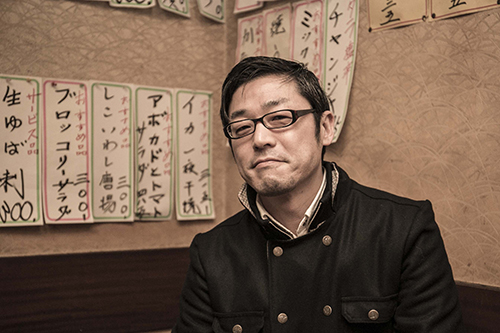
<Editor's note>
After finishing the interview, I realized that the movie ``Candidate'' is not a movie meant to criticize elections or politics. Of course, it's not a movie about Mac Akasaka, who is the main character, nor is it a movie that makes fun of popular candidates. What was there might have been the image of ``a person who fights without giving up even when he knows he will lose,'' and the director and the producers themselves who supported him, who identified themselves with that image. Everyone fights differently, and no one is in a position to say anything about it. To quote the movie's catchphrase, ``You haven't even lost yet.'' What kind of works will Producer Kinouchi and Director Fujioka create in the future? I can't predict that at all, but personally I'm looking forward to a document that will be the best in entertainment!
